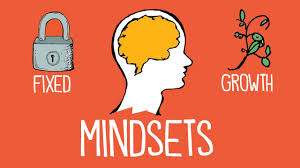|
There is undeniable value in believing that intelligence is not a fixed trait, but rooted in effort. As explained by the authors of a recent study on the subject: “Believing intelligence is malleable helps students to have greater motivation to work hard and is associated with positive effort beliefs and greater achievement.”
What is more, a “growth mindset” is logically associated with resilience: “Students who believe their intelligence is fixed are less likely to believe that working hard is important for success and more likely to make helpless attributions when faced with setbacks. However, those with a growth mindset are more likely to invest more effort and change strategies when faced with challenges.” Yet, this growth mindset is often presented as a dispositional characteristic, when environmental factors may be important precursors of this personality trait, notably inasmuch as they translate into a person’s “belief in a just world”--a deeply ingrained worldview shaped by various interactions with society and dictating the extent to which someone believes that the system in which they operate is predictable and fair. If they do not believe that their school environment is predictable and fair, students might not take the necessary steps to grow their intelligence and eventually develop a fixed mindset. In the first of two studies, a team of researchers surveyed 363 Brazilian fifth graders to determine whether Belief in a Just World (BJW) and trust in adults predicted the children’s growth mindset. BJW was measured through Dalbert’s (1999) questionnaire, which assesses both general and personal BJW; and a new instrument was developed to quantify adult trust through the participants’ degree of agreement with such statement as “When I have a problem, I ask adults to help me” and “Most adults have good intentions when they try to help me”. As for growth mindset, it was operationalized as the respondents’ degree of agreement with the statement: “I can increase my level of intelligence” (on a 4 point likert scale.) Results indicated that Belief in a Just World was significantly associated with gowth mindset, with adult trust playing an important mediating role. As explained by the authors: “Children who have trusting relationships with adults and a fair environment may also be more likely to believe that they have control over their intellectual development.” Importantly, they conclude: “This study acknowledges the world is not fair and there can be negative social outcommes to believing it is unequivocally fair (such as blaming the victim.) Therefore, we do not propose that the implication is to teach children that the world is fair. Instead, adults should be mindful of how much children learn and create assumptions about their environment and strive to create spaces of optimal fairness so children can perceive the connection between their efforts and outcomes.” Reference: Thomas, Moreira de Cunha, Americo de Souza and Santo (2019), “Fairness, Trust, and School Climate as Foundational to Growth Mindset: a Study Among Brazilian Children and Adolescents”, Educational Psychology.
0 Comments
Your comment will be posted after it is approved.
Leave a Reply. |
|
Proudly powered by Weebly

